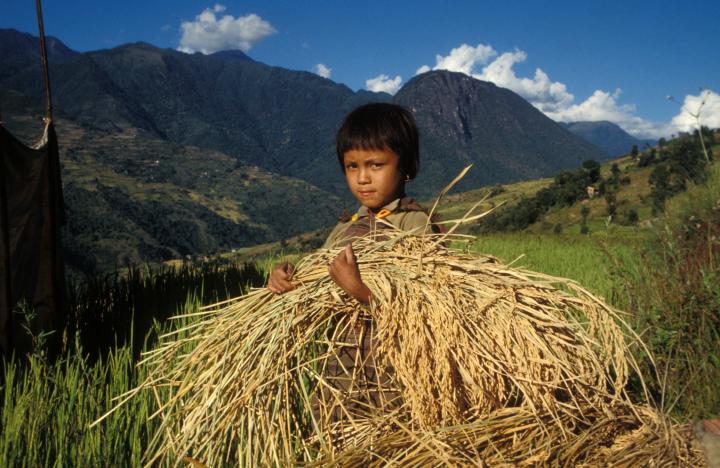
Asian Development Bank/ Elizabeth Donger
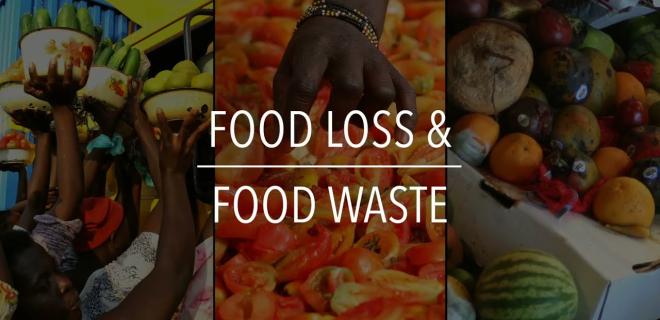
Reducing food losses and waste is essential in a world where the number of people affected by hunger has been slowly on the rise since 2014, and tons and tons of edible food are lost and/or wasted every day. Food loss and waste also puts unnecessary pressure on the natural resource base and on the environment, depleting the natural resource base and generating greenhouse gases.
STOP FOOD LOSS AND WASTE.
FOR THE PEOPLE.
FOR THE PLANET.
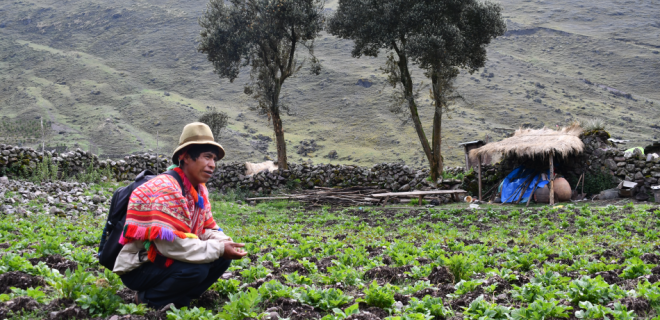
Residents in the rural areas of Peru are sending fresh, traditional foods to urban areas that are facing shortages because of pandemic-related supply chain disruptions.
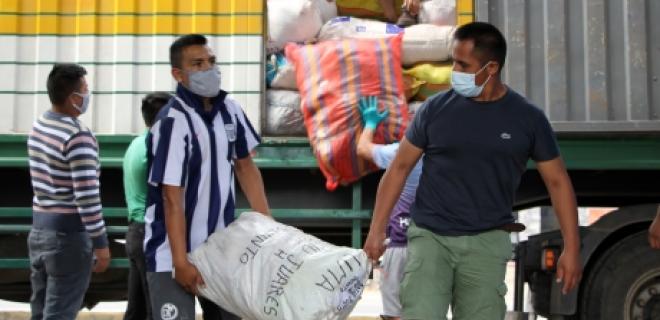
The Apachicuy initiative supported by FAO and GEF builds on the indigenous tradition of sending help, in this case nutritious food, to loved ones.
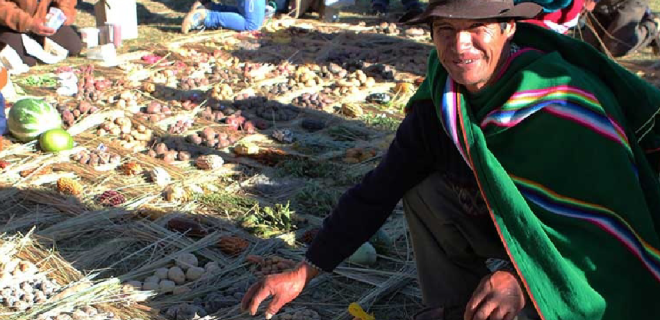
The Apachicuy initiative ties into a larger project in Peru that focuses on maintaining the rich agricultural biodiversity of this area.
PERU | Combating Food Insecurity with Ancestral Solidarity During the COVID-19 Crisis
Apachicuy Initiative | Food and Agriculture Organization of the United Nations (FAO)
In times of crisis, it is typically rural areas that are most vulnerable to adversity. During the 2008 food crisis, 73 percent of the hardest-hit Peruvians were living in the rural Sierra and Amazon regions. In these cases, it is often big cities that send humanitarian aid to the countryside. With the COVID-19 crisis, this situation has reversed. The pandemic’s mobility restrictions are disrupting food supply chains and hindering access to traditional and nutritious food in urban areas.
Global solidarity is needed now more than ever. Apachicuy – “help the loved ones” in the Quechua language – is an ancestral indigenous practice which ensures that whatever the hardship, family, friends, and community get the support they need. It is a calling to support one another during difficult times like the COVID-19 pandemic.
Building on this tradition, the Food and Agriculture Organization of the United Nations (FAO), in partnership with the Global Environment Facility (GEF), and with Peru’s Ministry of the Environment and the Ministry of Agriculture and Irrigation, launched the Apachicuy initiative. The initiative coordinates the delivery of fresh food, produced by indigenous farming communities, to Peru’s cities during the COVID-19 pandemic.
Thanks to the Apachicuy initiative, 2 856 families in major Peruvian cities such as such as Lima, Nazca, Pisco, Ica, Cañete, Tacna, Moquegua and Arequipa have already received sustainable and nutritious food shipments. This initiative has also supported the livelihoods of indigenous farmers, who are economically affected by the pandemic and the related containment measures that prevent their produce from reaching urban markets. Combating food loss and waste by ensuring that food supplies are not wasted.
The Apachicuy initiative is part of a larger project, the Globally Important Agricultural Heritage Systems (GIAHS) programme. The programme works with indigenous family farmers to preserve agro-biodiversity in the Andean region of Peru — one of the world’s most important centers of agricultural diversity.
This GIAHS project in Peru also focuses on making the ecosystem economically attractive by marketing products as organic and natural. Ensuring that projects promote agriculture, while also respecting the environment, is an important aspect of the FAO-GEF partnership.
FAO through programmes and international development projects strives to be a source of support in protecting food and income sources for vulnerable communities during crises and beyond.
Learn More About UNDB and COVID-19 ❭❱
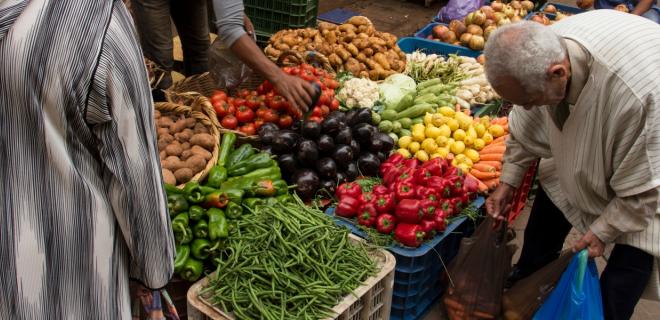
The World Bank Group works with partners to improve food security and build food systems that can feed everyone, everywhere, every day.
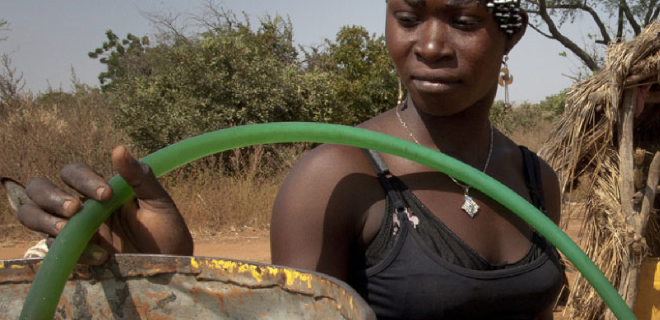
The World Bank in Burkina Faso supports active operations in several areas, including education, environment, urban and rural development, health, transportation and agriculture.
BURKINA FASO | Agricultural Productivity and Food Security Project (PAPSA)
Global Agriculture and Food Security Program (GAFSP) | World Bank
Despite Burkina Faso’s harsh climate, the agriculture sector continues to generate roughly a third of the country’s GDP and employs over 80% of the population. As a Sahelian country, Burkina Faso is vulnerable to climate shocks, which lead to poor harvests yields, a challenging food production system, and a poor rural population. The sector is dominated by subsistence production and characterized by low crop and livestock productivity, low but increasing diversification, and the limited participation of formal private businesses in agricultural development.
The Agricultural Productivity and Food Security Project (PAPSA) of the Global Agriculture and Food Security Program (GAFSP) supports the Burkina Faso government’s National Rural Sector Program (PNSR) by helping poor farmers increase their crop and livestock production and expanding the volume of food products sold in rural markets.
The GAFSP fund was established as a Financial Intermediary Fund (FIF) in April 2010 in the World bank. GAFSP is a multilateral mechanism to assist in the implementation of pledges made by the G20 in Pittsburgh (United States of America) in September 2009. The objective is to address the underfunding of country and regional agriculture and food security strategic investment plans already being developed by countries in consultation with contributors and other stakeholders at the country-level.
PAPSA has benefited 853,207 people, 31 percent of whom were women, exceeding the end of project target of 800,000.
To promote post-harvest activities and reduce post-harvest losses, the project has ensured that 31 multifunctional platforms were operative and distributed 200,000 triple bagging units to women for cowpea conservation.
PAPSA's key achievements include:
- Equipping 15,625 hectares of land with new irrigation and drainage services.
- Installing 36 private or private-public agro-processing and quality control facilities, meeting the project target.
As a result of project activities, 39,485 hectares of additional land have adopted project-promoted technology and the average annual yields of rice observed in project-developed lowlands have evolved positively.
View GAFSP Procurement Notices on UNDB ❭❱
View Agriculture Procurement Notices on UNDB ❭❱
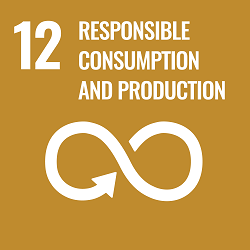
Sustainable Development Goals
Goal 12: Ensure sustainable consumption and production patterns is essential to sustainable development. It is at the forefront more than ever as the world continues to fight the COVID-19 pandemic.
In times of crisis, it is typically rural areas that are most vulnerable to adversity. The pandemic’s mobility restrictions are disrupting food supply chains and hindering access to traditional and nutritious food in urban areas.
International development projects support sustainable production, the promotion of efficient post-harvest activities, and the reduction of post-harvest losses
UNDB facilitates sustainable consumption and production patterns by supporting and encouraging investment in countries’ agricultural development efforts.
Target 12:
By 2030, halve per capita global food waste at the retail and consumer levels and reduce food losses along production and supply chains, including post-harvest losses.
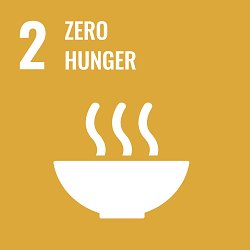
Sustainable Development Goals
Goal 2: End hunger, achieve food security and improved nutrition and promote sustainable agriculture is essential to sustainable development. It is at the forefront more than ever as the world continues to fight the COVID-19 pandemic.
The economic slowdown and the disruption of food value chains caused by the pandemic are exacerbating hunger and food insecurity. Measures to strengthen food production and distribution systems must be taken immediately to mitigate and minimize the impacts of the pandemic.
International development projects support effective, scalable, and practical solutions for secure and sustainable food and agriculture systems.
UNDB facilitates sustainable food production patterns by supporting and encouraging investment in countries’ agricultural development efforts.
Target 2:
By 2030, end hunger and ensure access by all people, in particular the poor and people in vulnerable situations, including infants, to safe, nutritious and sufficient food all year round.


